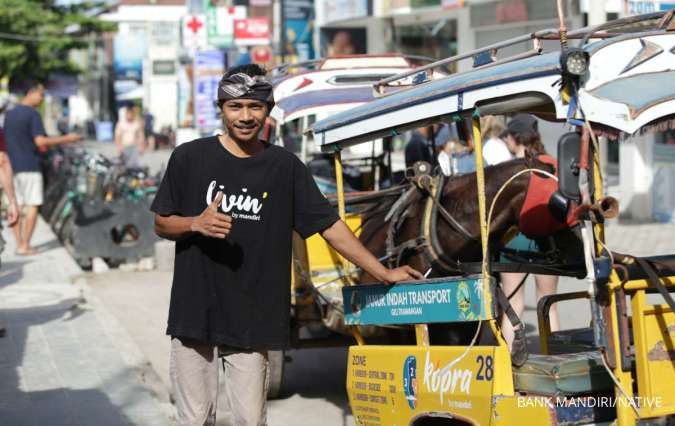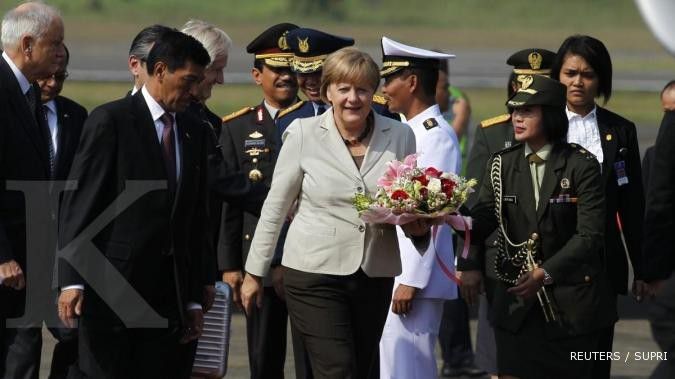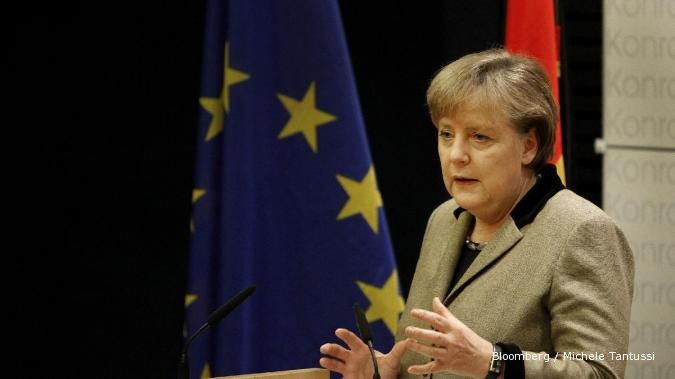JAKARTA. Indonesia would receive a boost from the world’s biggest travel fair and construction fair in Germany this year, a diplomat said on ThursdayGerman Ambassador to Indonesia Georg Witschel said that President Susilo Bambang Yudhoyono would start a three-day state visit to Germany on March 3. “Being main partners [in the two big fairs] means you have a very elevated position. It could become a public relations campaign for Indonesia,” Witschel told reporters in his office. The ambassador said that upon arrival in Berlin, Yudhoyono would be welcomed with military honors by German President Joachim Gauck, followed by bilateral talks with Chancellor Angela Merkel, before attending a forum with 150 leading German executives. “Yudhoyono is also set to have a one-to-one meeting with representatives of German businesses and is expected to conduct the signing of a major public investment deal,” Witschel said, claiming that no details on the size of the deal were available. Witschel added that both nations currently had members on civil society advisory groups, as a follow-up to the Jakarta Declaration endorsed by Yudhoyono and Merkel to mark the 60th anniversary of Indonesian-German diplomatic ties during Merkel’s visit to Jakarta in July last year. “[The declaration] will soon be operational on various issues, including security, health and cultural cooperation,” the ambassador said.Together with Merkel, Yudhoyono has been scheduled to open the annual Berlin Travel Fair (ITB) on March 5. The ITB attracted 172,132 visitors last year, including 113,006 travel professionals. Indonesia has participated in the fair since its inception in 1968. Germany is now the fourth largest source of European tourists to Indonesia with 120,000 Germans visiting the nation last year. “Indonesia will have good opportunities being the main partner. It will definitely attract more tourists,” Witschel said, adding that 7,600 journalists from 90 countries would cover the event. Indonesia will also be the main partner of the Construction Fair in Munich in April. “Due to its healthy economy, Indonesia will have more construction activities, meaning that companies will need more machinery,” the ambassador said. Indonesia and Germany have strengthened ties following Merkel’s visit in July, and more recently, a visit by Foreign Minister Guido Westerwelle Asked whether Berlin would raise the issue of human rights, Witschel said, “I can’t predict whether Merkel and Gauck will talk about the issue, because I haven’t seen the documents yet. Normally, in almost all cases, it is on the agenda.”In its latest assessment of religious freedom in Indonesia, the New York-based group Human Rights Watch (HRW) highlighted the government’s failure to protect religious minorities throughout 2012. Citing the Setara Institute, a local NGO that monitors religious freedom, attacks against religious minorities rose from 144 cases in 2011 to 264 cases in 2012, the report said. Contacted separately, Hendardi from the Setara Institute said that improvement in Indonesia’s economy had not been followed by an improvements in human rights. “In this case, developed countries like Germany should continue pushing Indonesia to boost human rights.”
RI to become main partner in German major fairs
JAKARTA. Indonesia would receive a boost from the world’s biggest travel fair and construction fair in Germany this year, a diplomat said on ThursdayGerman Ambassador to Indonesia Georg Witschel said that President Susilo Bambang Yudhoyono would start a three-day state visit to Germany on March 3. “Being main partners [in the two big fairs] means you have a very elevated position. It could become a public relations campaign for Indonesia,” Witschel told reporters in his office. The ambassador said that upon arrival in Berlin, Yudhoyono would be welcomed with military honors by German President Joachim Gauck, followed by bilateral talks with Chancellor Angela Merkel, before attending a forum with 150 leading German executives. “Yudhoyono is also set to have a one-to-one meeting with representatives of German businesses and is expected to conduct the signing of a major public investment deal,” Witschel said, claiming that no details on the size of the deal were available. Witschel added that both nations currently had members on civil society advisory groups, as a follow-up to the Jakarta Declaration endorsed by Yudhoyono and Merkel to mark the 60th anniversary of Indonesian-German diplomatic ties during Merkel’s visit to Jakarta in July last year. “[The declaration] will soon be operational on various issues, including security, health and cultural cooperation,” the ambassador said.Together with Merkel, Yudhoyono has been scheduled to open the annual Berlin Travel Fair (ITB) on March 5. The ITB attracted 172,132 visitors last year, including 113,006 travel professionals. Indonesia has participated in the fair since its inception in 1968. Germany is now the fourth largest source of European tourists to Indonesia with 120,000 Germans visiting the nation last year. “Indonesia will have good opportunities being the main partner. It will definitely attract more tourists,” Witschel said, adding that 7,600 journalists from 90 countries would cover the event. Indonesia will also be the main partner of the Construction Fair in Munich in April. “Due to its healthy economy, Indonesia will have more construction activities, meaning that companies will need more machinery,” the ambassador said. Indonesia and Germany have strengthened ties following Merkel’s visit in July, and more recently, a visit by Foreign Minister Guido Westerwelle Asked whether Berlin would raise the issue of human rights, Witschel said, “I can’t predict whether Merkel and Gauck will talk about the issue, because I haven’t seen the documents yet. Normally, in almost all cases, it is on the agenda.”In its latest assessment of religious freedom in Indonesia, the New York-based group Human Rights Watch (HRW) highlighted the government’s failure to protect religious minorities throughout 2012. Citing the Setara Institute, a local NGO that monitors religious freedom, attacks against religious minorities rose from 144 cases in 2011 to 264 cases in 2012, the report said. Contacted separately, Hendardi from the Setara Institute said that improvement in Indonesia’s economy had not been followed by an improvements in human rights. “In this case, developed countries like Germany should continue pushing Indonesia to boost human rights.”





